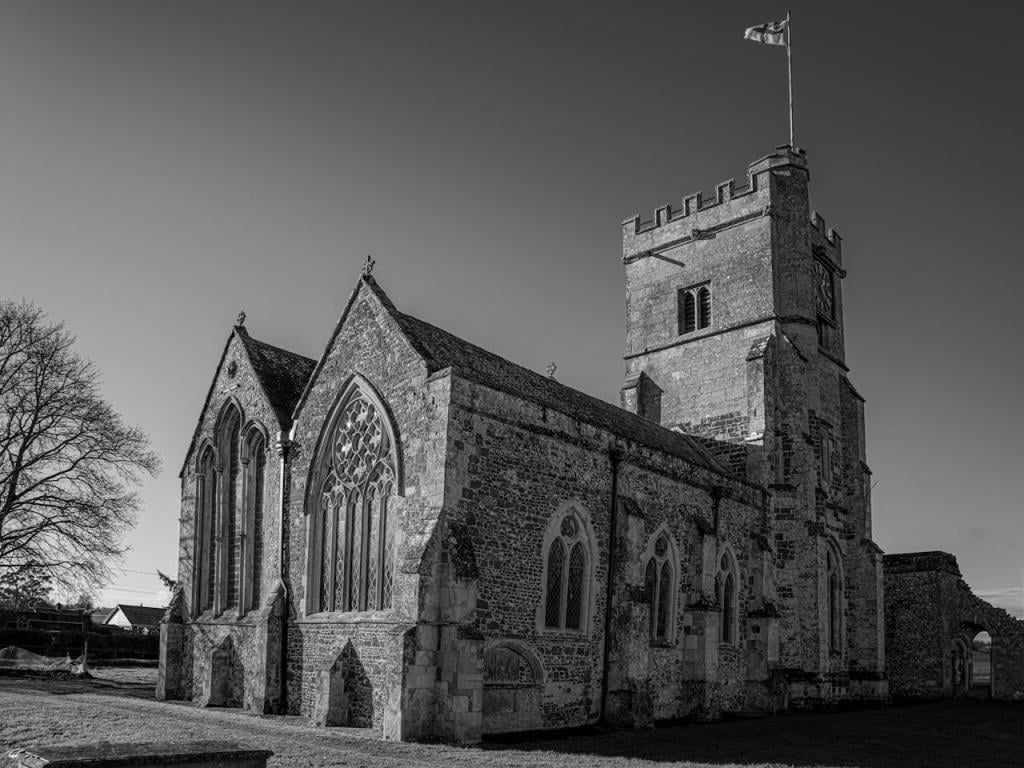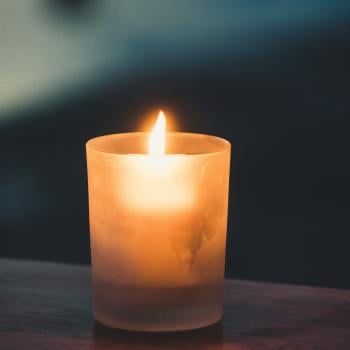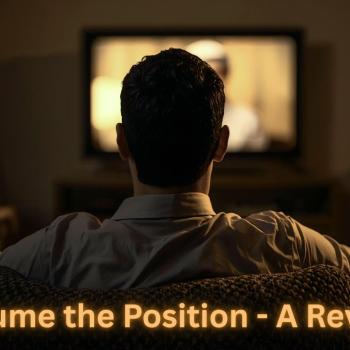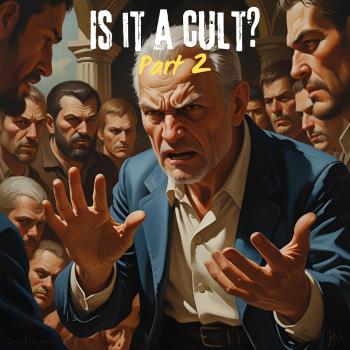
My Top 10 Suggestions for Theologians
Note: I respect progressive theologians for making “progress,” but in many ways, they are still clinging to systems that are flawed and using methods that foster abuse, neglect, and ineffectiveness. Some recent events have led me to believe that popular progressive theologians are ignoring survivors and still harming people because they haven’t done the necessary work. It’s easy to criticize Evangelicals, but it’s essential to do the internal work before starting something new.
What would you think if you found out that someone had removed the stage the next time you went to church, and the entire auditorium had been completely remodeled? You would notice there’s no more raised platforms where one person could stand above the others. There are also no seats arranged in a single direction facing the altar or stage. Instead, you see booths offering food and other areas where people can sit and talk. The people standing around are discussing the new changes. You observe stations for healthcare and counseling, and everything seems focused on the well-being of the crowd. No one is standing around in the auditorium giving lectures or promoting anything, just many conversations.
What would you call something like this? A community?
Maybe. But we might have to uncover even more than that. People have imagined what the 1st-century Christian Church looked like and started things like house churches and small congregations where they could control all the variables. But as we know, these efforts usually don’t grow very large, and often, people realize they are gathering in someone else’s house to have a community they could probably find in their own neighborhood or at a soccer game.
We know deep down that the mega-church was never the original plan of those who started Christianity. We understand that Jesus envisioned a movement beyond church walls and emphasized people loving their neighbors. He explicitly condemned those who would “Lord” over others. Yet, over the past 1700 years, people have naturally realized they could control the story by controlling the people. This belief allowed them to build larger buildings and to manipulate what they thought or taught others to be afraid of.
In America, this became even more intense throughout our short history, from Billy Sunday to Billy Graham and modern figures like Marc Driscoll. They all saw that patriarchy is a way to control the narrative, and nothing motivates people more than fear. Never has a group of people been so enamored with the idea that they are “special” when they are so completely off base from who they claim as their Messiah. They are so convinced that they are right and that God is on their side that they relentlessly foster learned helplessness among listeners, repeatedly indoctrinate people with their “take” on their holy book, and use fear to control any opposition.
Who is this group—it’s the theologians!
Before you grab the pitchforks and light the bonfire, I suggest you consider a few things. First, theology might have been settled if we had listened to what Jesus said. He summed everything up with the simple idea of loving your neighbor. If you want, you can add the golden rule and rephrase it as a warning to avoid hurting others. In modern terms, we often say, “Do no harm!” We wouldn’t have needed to write theology books or hear speeches if we had followed his words.
Most of the damage started with Paul, then Augustine, and Constantine, and continued because people found it hard to love their neighbors without trying to control them. Theologians created a complicated, time-consuming way to unite us, even though it often divided us into classes, levels, and hierarchies. It’s eye-opening to see that most wars, directly or indirectly, were driven by fear caused by religious leaders. Hitler’s army was almost entirely Christian.
Most of what we do in today’s theology is unravel the harmful theology of our past, created by, guess who, theologians! Many of us are engaged in some form of deconstruction, which has always been part of the reality of being a Christian. So even though criticizing the evangelical fundamentalist clowns that we see on stage gives us a sense of righteousness, it’s really all a part of the DNA that we inherited and what we did with it.
What do you suggest, Karl?
First, thank you for not accusing me of generalizing, which I must do when discussing such a significant issue. I understand that your church is very different from others, and yours is correct. But that is what theologians always believe, and teach their followers (We are right, and God is on our side)!
My Top 10 Suggestions for Theologians (And I used to be one).
10. Accept the fact that religion has created trauma.
At least one-third of people in church experience some form of religious trauma. Address this issue first, or don’t call yourself a follower of Jesus.
9. Realize that churches don’t have room for our grief.
Seventy percent of the money and most of the energy in a church go toward maintaining the organization and its assets because “The show must go on.” The trauma remains unaddressed.
8. Understand that your theology creates defensiveness.
When you label something as a belief, you defend it. You also spend a lot of time trying to convince others that you’re right.
7. Consider that you might be wrong.
The typical response of a theologian is, “Maybe, but I don’t think so.” One way to begin growing again is to admit aloud, “I may be wrong, and you may be right.” (See Larry Jordan for more on this).
6. Realize that your position creates power differentials.
I have never met a pastor who began with the intention of abusing people. Still, for most of us, as we struggle to grow a community and see shortcuts, it can become almost too easy to follow the flow of patriarchy and abuse. After all, we believe we are right, and God is on our side, and it’s for the greater good. This situation often ends with someone like Mark Driscoll boasting about those run over by the bus.
5. Admit that most of your theology is not original.
Most theology is not as original as we often think. It tends to respond to other harmful groups or repeat past ideas. Many of our doctrinal statements and creeds are not original to Jesus; they are reactions to other theologians and cultural issues. Again, what if we focused on doing no harm and loving our neighbor? Even if your church is now inclusive, it is still responding to a 20th-century shift in theology.
4. Stop meeting in buildings.
Salaries and building expenses consume 70% of your offerings and most of your effort, and they only worsen many of the issues discussed here. They also pull people away from real communities and force them to nurture and protect the false communities they create.
3. Stop holding conferences.
I recognize the power of a large group gathering. However, it’s possible that only a specific class of people can afford to attend, and those on the stage aren’t necessarily the voices we should be listening to (reference the shit shows of the recent past). It usually turns into fear, control tactics, and showbiz fluff!
2. Stop building organizations (aka starting something new).
My ex-pastor friends who deconstruct are trying to build an organization or followers. Most of them haven’t spent any time in trauma therapy, addressed their toxicity, or discovered who they truly are. Yet, they crave attention, so they keep talking! Noticeably, those who have done the healing work are quite unique.
1. Take down the stage.
It is the root of the problem and where most other issues start. It attracts narcissists and shields them when they fail.
Bonus: Dopamine should not be confused with the Spirit.
No matter how we label it, it’s usually just entertainment and various forms of hypnosis. Sometimes, it’s like a circus, and since the coliseums of Ancient Rome, we have known that people always come for the “spectacle.” But that doesn’t mean there’s anything spiritual happening. Jesus the Mystic taught us that! I can almost predict the response because it happens every time I write about these topics.
Theologians criticize me for making generalizations and will point out how they are different in their needs and not part of the problem. Many of the faithful might admit the system is broken, but also say they don’t know how to step outside of it.
Be where you are, Be who you are, Be at peace!
Karl Forehand
Learn to be Where You Are (Presence)
Learn to be Who You Are (Authenticity)
Finding Regulating and Somatic Healing
Are you genuinely committed to deconstruction and seeking more profound answers?
If that’s the case, this book was created for you. As a former pastor, I made the mistake of deconstructing a bit and then trying to start something new, as I was trained to do. The problem with that approach is that I wasn’t ready to begin something new.

I hadn’t delved deeply enough or asked enough questions. The first stage of deconstruction typically includes assessing our beliefs regarding hell and the afterlife, supporting queer individuals and women in their fight for equality, and achieving a better understanding of racism and privilege.
Many people in deconstruction communities expend significant effort criticizing Evangelicals and attempting to gain a following. While I believe they deserve intense criticism, this strategy fails to effectively tackle the problem because they generally don’t listen to us!
Our tendency to punish our former organizations sometimes overlooks the challenging process of healing and growth. It is the same trap we fell into in our former associations.

Campfires occupy a special spot in the mosaic of history. They act as communal hubs across different cultures and faiths. The campfire’s circular design fosters equal participation within the collective group. The flames at the center draw our focus and encourage face-to-face interactions as we exchange experiences, wisdom, and insights about the world beyond. It is where legendary myths and tales are born.
Order Now – Study Questions in each chapter!
This book is named Campfires in the Desert as it stems from nearly 400 discussions we held with individuals on our podcast, The Desert Sanctuary, and our aspiration to improve.
Available now!
Thanks for considering us, autographed copies are $20
Karl Forehand Campfires in the Desert – A Soft Book Release. Karl Forehand is a former pastor, podcaster, and award-winning author. His books include Out into the Desert, Leaning Forward, Apparent Faith: What Fatherhood Taught Me About the Father’s Heart, The Tea Shop, and Being: A Journey Toward Presence and Authenticity. He is the creator of The Desert Sanctuary podcast and community. He has been married to his wife Laura for 35 years and has one dog named Winston. His three children are grown and are beginning to multiply! You can read more about the author here.

















